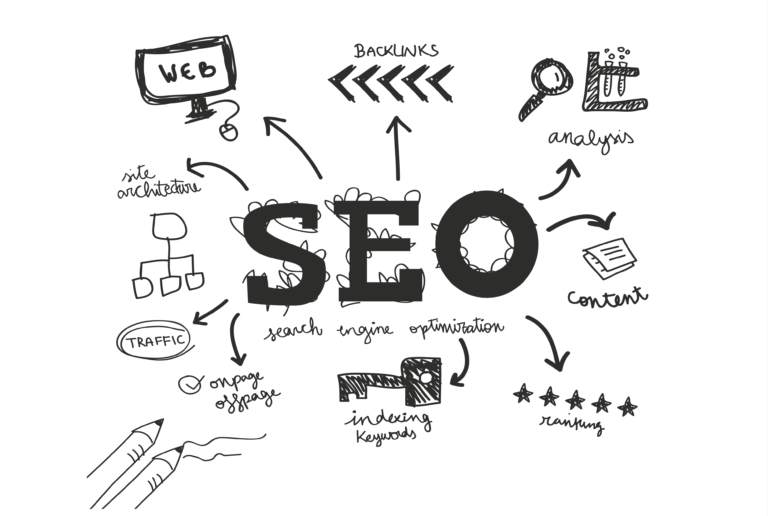This is what I have learned from SEO in a nutshell
-
officialhogi

Before I became an SEO specialist, I was a marketing intern at a dutch software company.
As an intern, I received the most annoying tasks of all.
The ones that nobody wants to do.
And, I could have taken the same approach as any other previous interns but I decided to be proactive.
So, with the help of my supervisor, I created an online marketing plan.
An SEO plan.
The plan resulted in significant more leads than any period before.
And they hired me as a SEO specialist.
And this is what I have learned in the past 3 years working as an SEO specialist:
Everything you need to know about SEO
So, Google uses an algorithm that makes sure that the most relevant, trustworthy and quality page is shown on the first position on a search term.
But how does it work?
Well, everyone has a different view and strategies on how google’s algorithm works and I like to make mine as it as simple as possible with an analogy:
“Google’s algorithm is similar to imdb”
Just like IMDB, Google values the opinion of the audience.
If a movie is badly rated on imdb then we all know that the movie isn’t worth watching.
Same with google.
Only difference is that movies are rated and positioned based on reviews from the people who watched the movie.
With google, it is a bit more complex.
“SEO is the process of improving the quality and quantity of the traffic to your website”
So basically, the goal of an SEO specialist is to ensure that the right audience will enter your website and help them easily navigate through your website so they receive the right information at the right moment.
To generate leads.
The 4 essential SEO building blocks
Note: If you exclude setting up the website, the conversion tracking and signing up on google platforms (analytics, Tag manager, Search console and Mybusiness)
As we now know, SEO is all about targeting the right audience with the right information at the right moment.
So, how can we achieve that?
Keyword research
First of all, as an SEO specialist, one of your main priorities is to ensure that the right audience will enter your website, by diving into the keyword research.
Keyword research is similar to fishing. If you want to catch salmon, you have to find the place where the salmon lives.
“Don’t expect salmons in places where you only find catfishes”
Same with keyword research. If you want to find your audience you have to understand what keywords they are searching for when looking for a similar product as yours.
On-page optimization
When it comes to on page optimization, it is all about giving the right information on the right page and ensuring a good visitor experience.
This can be broken down into two types of on page activities:
1. Content based activities
2. Technical based activities
In short, ensuring that the visitors can navigate to all your pages without any friction which includes; a fast loading speed (basically, how long does it take to load a page), an appealing text, image, call to actions, working internal backlinks and the list goes on.
Off page optimization
For me, off page optimization has two purposes.
First, it helps you spread brand/product awareness on websites where your audience are on.
Secondly, backlinks from external websites improves your position on google.
Links from external websites are similar to reviews on movies on imdb.
Every external link is another way of saying: hey, other websites are talking about us.
And Google’s values these links.
It shows that your website is popular, trending and a hot topic regarding a subject.
You can see external backlinks as gossiping.
The more people (in this case, websites) talk about it the more people (real people and google) will know about your product.
However, just as any reviews, you want people to talk positively about your product.
A bad review can have a negative impact on your brand.
Same with external backlinks.
You want other websites to talk positively about your brand and make sure that the external website where your backlinks are found isn’t from a scam or toxic website.
Otherwise, it can damage your website’s ranking.
Monitoring progress
Now that you know how SEO works in a nutshell, it’s on to the last part.
Well, this is the easiest part of all.
You do exactly what is expected of you.
Monitoring the progress
You can track your progress based on your goals.
in general, this can be:
+/- in search position
+/- traffic per month
+/- conversions per month
+/- Clickthrough rate
+/- bounce rate
And based on the outcome, you have to pivot (change) your SEO strategy.
As an SEO specialist, you have full control on what you want to focus on. You can;
Focus on obtaining high positions on a large pool of keywords
Focus on getting a high position on one specific keyword
Focus on producing quality content
Focus on linkbuilding
And more!
What I have learned
However, what I noticed in my early years is that all the building blocks of SEO are interconnected. Meaning that each element is equally important in its own way and has a major influence on the performance .
A bad keyword research leads to a wrong focus point which in turn leads to less quality visitors on your website.
A bad on page optimization makes it difficult for visitors to navigate and receive the right information which in turn leads to an increase of visitors leaving your website.
Without off page optimization, you will not gain a high position on the search engine which in turn leads to less visibility and web visitors.
Without monitoring the process, you won’t know if your SEO strategy works or not.